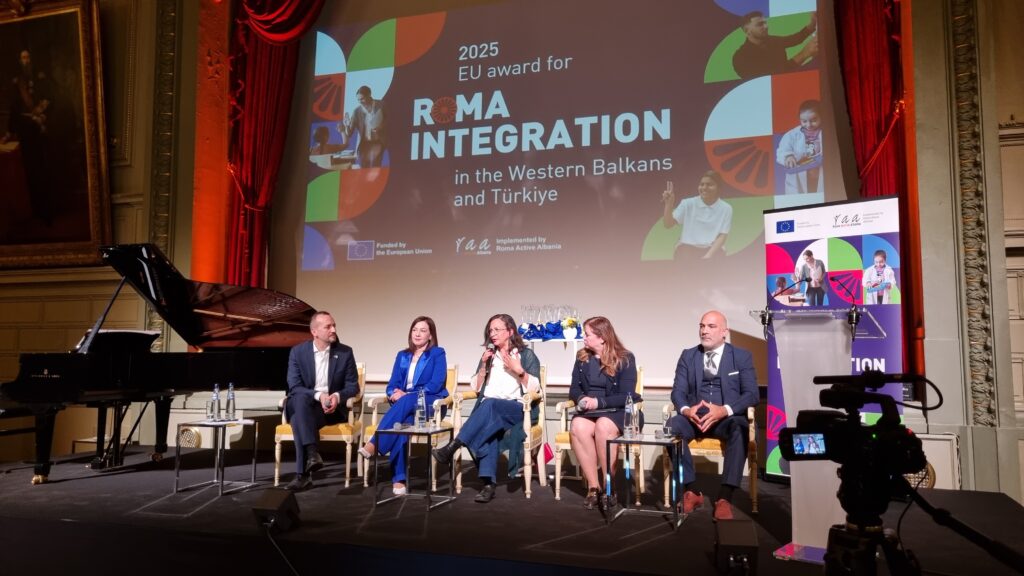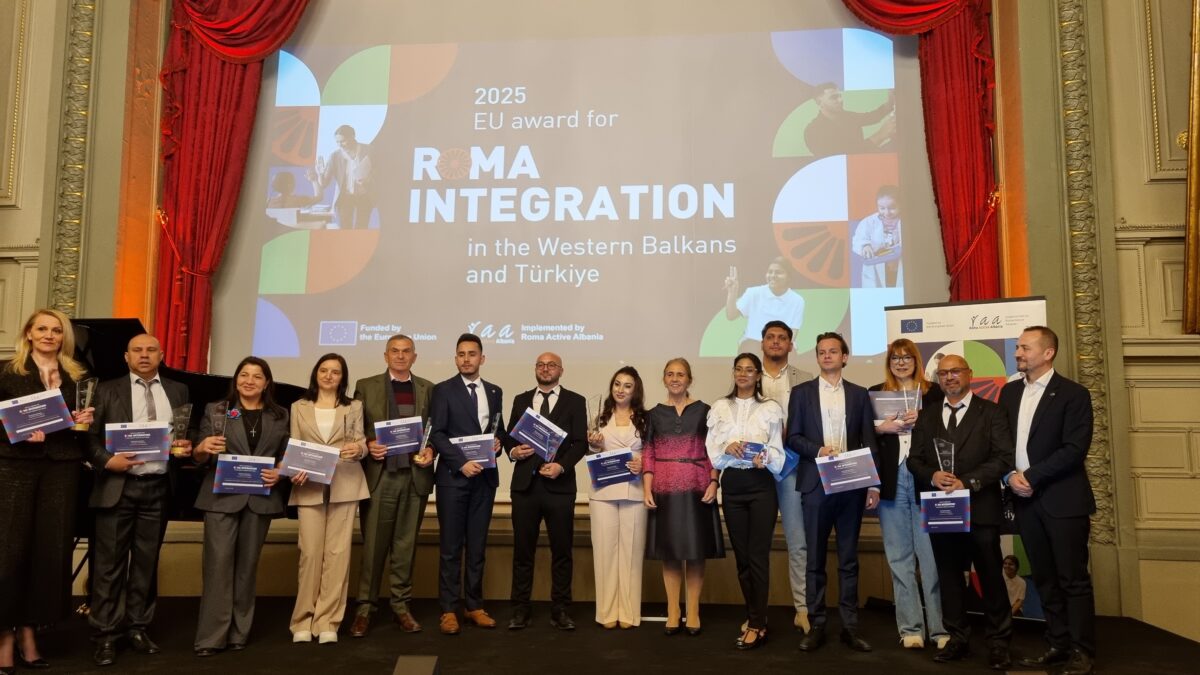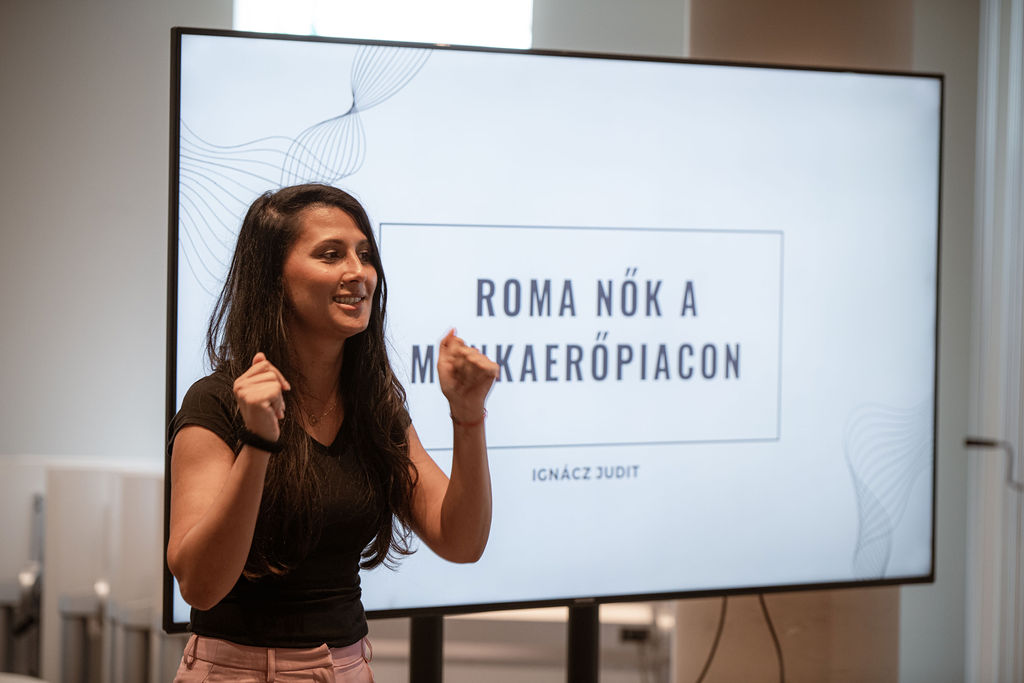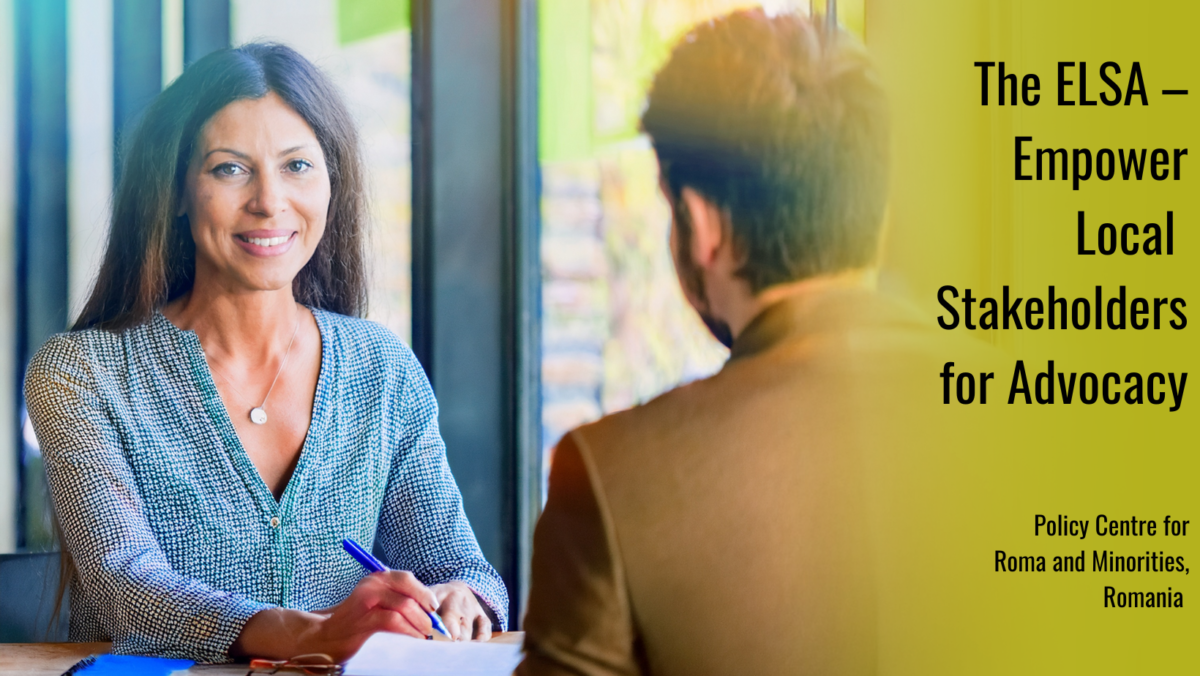2025 EU award for ROMA INTEGRATION in the Western Balkans and Türkiye
The 2025 EU Award for Roma Integration in the Western Balkans and Türkiye celebrated its sixth edition this year, showcasing people and organisations who are making a real difference in the lives of Roma communities. This year’s focus was on education, a powerful tool. But it is not just about attending school, it’s about having the chance to grow, socialise and take part fully in society. Yet, for many young Roma, education is where exclusion begins.
Organised by the European Union and Roma Active Albania, the awards took place 10th of April during the Roma Week 2025. The awards highlighted the incredible work and dedication of people and organisations who are active changemakers. The message from this year’s winners was strong and clear: anyone, from any background, can create real and lasting change.
The 6th edition of the 2025 Awards recognised 15 winners, selected from over 100 applications and nominations across the Western Balkans and Türkiye.

Winners:
Albania
Roma Women Rights Centre (first prize) was recognised for its powerful role in fighting school segregation. The centre supports Roma children in mainstream education and empowers over 600 adults, particularly women, through learning and vocational training.
Latif Kazanxhiu (second prize) was honoured for his lifelong dedication to Roma education. He opened a Romani-language school in his home and advanced digital and educational skills for youth today. It helps bridge generational gaps in learning and opportunity.
Bosnia and Herzegovina
Romska djevojka – Romani Ćej (first prize) was recognised for its grassroots efforts to boost school attendance and reduce dropout rates among Roma girls in Prnjavor. The program focused on mentorship, community trust-building, and creative learning to empower the next generation.
Mujo Fafulić (second prize) has dedicated over 20 years to improving education access for Roma children in Kakanj, increasing enrollment from 54 to 146 students. Through preschool preparation and family outreach, he has supported hundreds of children and parents while continuing to advocate for systemic education improvements as a local councillor
Kosovo
Roma Versitas Kosovo (first prize) has empowered Roma, Ashkali, and Egyptian youth through mentoring, scholarships, and training. They continue to expand their impact with initiatives like Win4VET and support for early childhood education.
Orhan Butic (second prize) has supported early education for Roma, Ashkali, and Egyptian children in Kosovo, focusing on reintegration, learning, and bridging gaps between families and schools. His plans are to expand support for Roma girls and strengthen institutional collaboration.
Balkan Sunflowers Kosova (second prize) supports over 600 Roma, Ashkali, and Egyptian children daily through community-based education, and in 2024, helped boost preschool and high school transitions, with plans to expand digital literacy and institutional collaboration.
Montenegro
Ministry of Education, Science and Innovation (first prize) is advancing inclusive education for Roma and Egyptian communities through early learning, scholarships, mobile kindergartens, and Roma mediators, with plans to expand digital access and school support.
Sebastijan Baftijari (second prize) empowers Roma and Egyptian youth through peer mentoring, school clubs, and his NGO RE Green, blending education with environmental and digital literacy to foster youth-led community change.
North Macedonia
Doan Sulejmanoski (first prize), a principal and advocate, empowers Roma youth through mentorship, civic education, and leadership training. He aims to connect students with opportunities in law, media, and public life.
Senada Sali (second prize), a Roma lawyer, leads the fight against school segregation in North Macedonia. She uses community advocacy and training efforts to ensure inclusive, dignified education for Roma children.
Serbia
Centre for Youth Integration (first prize) supports Roma children in street situations with education and job skills. They are reducing dropout rates and planning to expand through mobile outreach and stronger institutional ties.
Music Art Project (second prize) uses music to unite Roma and non-Roma children, building confidence and inclusion through performance, while expanding its diversity-focused curriculum and reach across Serbia.
Turkey
Şişli Municipality (first prize) supports Roma inclusion through education and community services. They offer tutoring, workshops, and vocational training, with plans to expand early learning and study centres.
Tugay Aslım (second prize), a Roma educator and researcher. He supports Roma children through mentorship and sports, He plans to establish a Roma Coordination Centre and a platform linking youth to scholarships and employment.
The award is funded by the European Union and implemented by Roma Active Albania.












